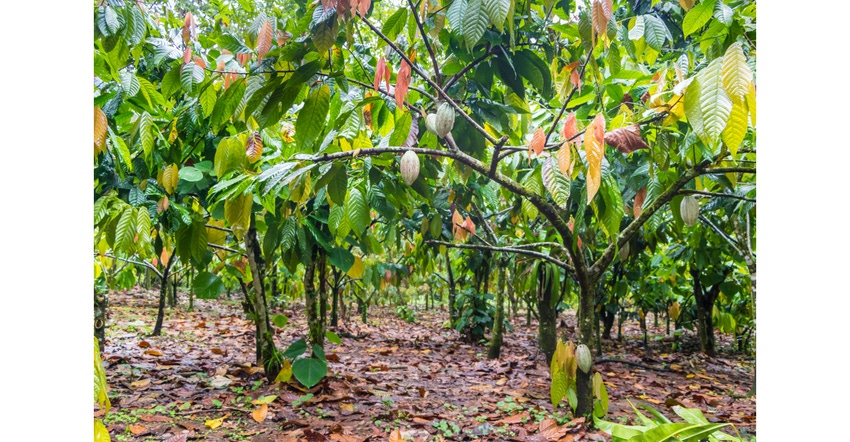Nestlé Partners on Reforestation Project for Côte d'Ivoire Cocoa Industry
The collaboration includes the Swiss Federal Administration (SECO), the Ivorian Ministry of Water and Forests (MINEF), Nestlé, Touton, Cocoasource and Earthworm Foundation (EF).
June 28, 2023

A multi-sectoral collaboration is committed to contributing towards the protection and restoration of the classified Cavally Forest in Côte d'Ivoire, West Africa, in partnership with local organizations and communities. The collaboration includes the Swiss Federal Administration (SECO), the Ivorian Ministry of Water and Forests (MINEF), Nestlé, Touton, Cocoasource, and Earthworm Foundation (EF).
This new collaboration follows the initial three-year project funded by Nestlé, which will run until the end of June 2023. The preliminary results are very encouraging. During its first phase, the Cavally project led to a significant reduction in deforestation, the natural regeneration of 7 000 hectares, and the reforestation of almost 1 500 hectares. In addition, greater economic and social resilience has been observed within local communities, with more than 1 400 people benefiting financially from the project.
Beginning on July 1, 2023, the new three-year phase of the project will have more ambitious goals and moref partners.
With a total investment of CHF 4 million, equivalent to XOF 2.7 billion, this new partnership goes beyond preserving the classified Cavally Forest. It also aims to strengthen the resilience of the communities in the forest's peripheral zone and improve the transparency and traceability of the cocoa and rubber supply chain.
The Cavally project has four main objectives:
To prevent deforestation and improve the ecosystem by stimulating natural regeneration and rehabilitating degraded areas in close collaboration with local communities.
To improve the resilience of small-scale producers by helping them increase their productivity, achieve greater income diversification and gain easier access to financing.
To help protect the rights of the children of these producers by raising awareness and providing easier access to school, in particular by acquiring birth certificates.
To establish a more transparent supply chain for cocoa and rubber, in particular by improving traceability and exploring innovative solutions (including satellite monitoring) to increase the transparency of prices and payments to producers.
"During the first phase of the Cavally Forest regeneration project, we learned that there are various sides to the problem of deforestation in the area," said Bastien Sachet, CEO of Earthworm Foundation. "It is difficult to control such a large area. And the forest is attractive in terms of fertility and access to land for populations that are facing immense economic challenges. To combat deforestation and tackle the root causes of the problem, a collective approach based on creating value for producers and rural communities is required. This is why the presence of economic players in the rubber and cocoa value chains, coupled with a strong partnership with the government, is essential. It is the spirit of this collaboration that we are proud to be a part of."
To maximize the project's impact, this new phase now includes trading companies Touton and Cocoasource as well as Nestlé. They are active in the peripheral regions of the forest and already work with local cooperatives.
"The Cavally project is a very important initiative for us, as it allows our company to act directly within our supply chain. We are protecting a forest adjacent to the areas where we source cocoa and creating value for the farmers we work with," explained Corinne Gabler, Head of Confectionery & Ice Cream at Nestlé. "We're delighted to have been able to contribute towards the success of this first phase and look forward to working with new partners to further intensify the project's impact."
In 2018, the government of Côte d'Ivoire adopted a national forest preservation, rehabilitation and expansion policy, which aims to enable the country to recover 20% of its forest cover by 2030.
Other local organizations involved in the project include cocoa and rubber cooperatives: the Wild Chimpanzee Foundation (WCF), the Société de Transformation du Bois du Cavally (STBC), the International Centre for Research in Agroforestry (ICRAF), and the International Cocoa Initiative (ICI).
About the Author(s)
You May Also Like




